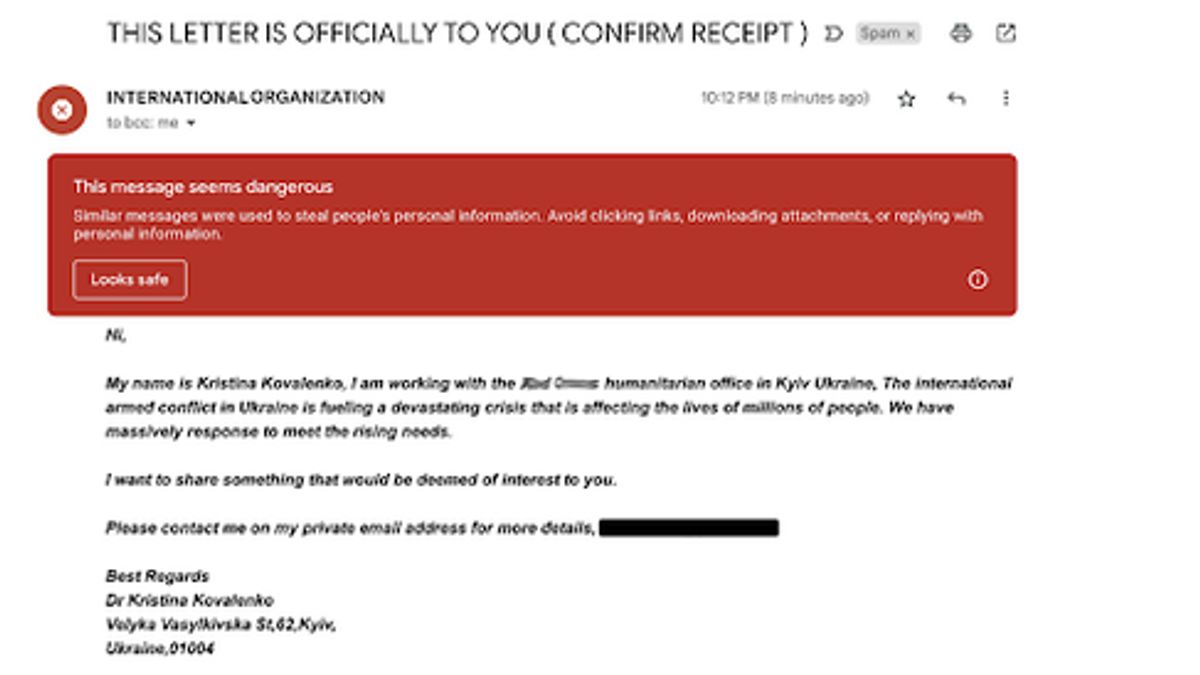JAKARTA - Towards the end of the year, many people are preparing for the holidays. According to Google, cyber fraudsters are very persistent at their best times, and the holiday season will make it even more extreme.
"We protect Gmail users from nearly 15 billion unwanted messages every day, blocking more than 99.9% of spam, phishing, and malware," Nelson Bradley, Manager, Google Workspace Security & Manager wrote on a Google blog.
According to him, bad actors have not slowed down during the holiday season. In the last two weeks, Google has blocked more than 231 billion spam and phishing messages, 10% higher than the average volume.
So, to help you be more vigilant this holiday season, here are the types of emails and hazards to watch out for:
Awards and gifts cards
On certain dates, many services provide special offers or even giveaways. Well, because of that, many scammers may try to trick you into saying that you won a special gift. So, you have to stay alert and check the truth again.
Charity
Google found charity-related fraud and phishing attempts to get worse so far this year, and harm victims of fraud and charities who will benefit from the gift.
Whether it's a charity related to news topics, or an organization with a familiar name, be aware of anyone who asks you to contact them via private email or send them money directly.
Demographic targeting
Some of the most dangerous scams are frauds targeted specifically for you. Maybe the criminal knows your number and intends to cheat. So, stay alert to messages or calls from certain people who may come from familiar people to you.
Subscribed Update
As it approaches the end of the year, subscription renewal scams can soar. A highly undesirable version of this antiviral spoof email service, which captivates victims with the promise of increased security.
While some scammers can make their messages look very convincing, always make sure to check the email of the sender. If you look off, it might be a scam.
Crypto scam
Due to the current very high trend of crypto-based fraud, crypto-based fraud has been rampant so far this year. General variations of this scam use cryptocurrency wallets to collect payments and often try to extort funds from victims through threats.
Note some signs to identify that it is a scam, including a typo, an email address that appears to be wrong, or a request for payment.
The English, Chinese, Japanese, Arabic, and French versions are automatically generated by the AI. So there may still be inaccuracies in translating, please always see Indonesian as our main language. (system supported by DigitalSiber.id)








